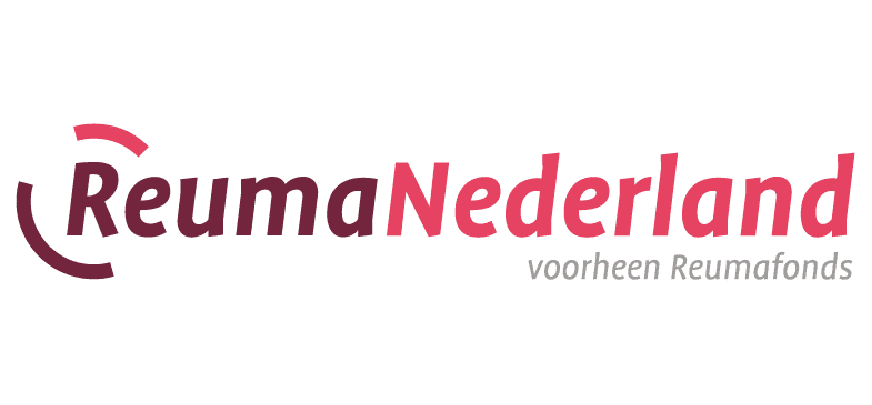Diagnosing Tietze or Costochondritis is just the beginning.
The healthcare system in the Netherlands is quite advanced. However, when you have been diagnosed with Tietze or Costochondritis, it would appear that there is little knowledge about this disease. The knowledge that is available might be hard to find and scattered around. GP’s in the front line might not lay a connection between Tietze and Rheumatism and will not send you to a Rheumatologist. Sometimes you might get the advice: ‘Learn to live with it’ or ‘Take a pill against the pain’. The patient might get the feeling of not being taken seriously, and being left on his/her own. Making the diagnosis of Tietze can help the patient, but that is not where the role for the GP ends. The patient may know what ails him/her, but the GP is not a specialist, and in general, knows very little about the disease and treatment. Normally, the GP would have a guiding and often also a coordinating role in chronic and rare diseases such as Tietze and Costochondritis. This goes further than just making a diagnosis. Listening, taking signals seriously, and sending the patient when necessary to a specialist is a good start.
Listening to an outspoken and experienced patient.
Gp’s and specialists who work in the Netherlands are generally well educated, experienced and trustworthy. Capable doctors are those who understand that listening is sometimes just as, if not even more important than prescribing a medicine are referring to a specialist. They know that empathy for the patient will help in curing the patient. They are more effective and are more professionally satisfied and will have lesser chance on a burn out. Not every doctor has a natural ability for that, but it can be taught.
The client is important. If we buy something in a shop or when we go out for dinner, we expect to get good quality goods and services for our money. If we do not get what we expected, we will make a complaint, and in extreme cases we will not return as a client. The relation between a doctor and a patient is just like that. Doctors ‘sell’ a service which we, as a client, pay for. Therefore we may have some expectations from the service that the doctor delivers. We may also have our own opinion on the condition of our own body, its ailments and the treatments. If we feel the need, we can ask for a second opinion. This is a positive development, but can sometimes be confusing for the consulting GP or specialist. The question is: How far does one’s own responsibility go, and where does it end?
In medical schools students are now being taught how to cope with an outspoken and knowledgeable patient more than ever before. Some patients like to leave the responsibility of the course of the treatment to the GP or specialist. There is nothing wrong with that. In most cases they can come to the right conclusion and treatment. However, in more complex cases, like with Tietze, where private and work circumstances are to be taken in account, some input from patients can help in finding the right treatment.
Since 1995, the law in the Netherlands on medical treatment agreements dictates the GP must give complete information, the pros and cons of different treatments and explain why he or she has come to the conclusion to prescribe a certain treatment. In most cases this is not a problem.
Tips for a good relationship with your GP (doctor)
- During a consultation, ask what the GP’s opinions are on Alternative treatments or the presciption of medicines.
- Write down before a visit all the questions you have. This will help you as a reminder during the consultation and as a checklist at the end of the session.
- Be open and say what you want to say, how you feel and what you want. Speak out when something is not clear to you and you require more explanation.
- Speak out when you have the feeling of not being taken seriously, or if you are not satisfied about the treatment.
- If you have fear or are doubtful, talk about it. Once you are back home, it is too late.
- At the end of the consultation, summarise the given information to see if you have understood everything well.
- Ask if there is a flyer or reading material.
- Do not hesitate to ask for a second opinion in a complicated or important matter. After all it is your body and your health we are talking about.
Golden Rules
A patient may trust that his/ her GP or specialist:
- Will always see and provide care to the patient in cases of acute chest pain.
- Will take the signals from the patient seriously even when the causes are unknown to him at the moment.
- Will trust and act upon good common and clinical sense.
- Understand that the pain is as bad as the patient expresses.
- Won’t send the patient home telling him to learn to cope with the condition.
- In certain situations will send the patient to a specialist centre for treatment of chronic pain near the patient’s residence.
- That in case of medical treatment understands that sometimes people suffering from chronic pain might require more or other medicines.
- That a patient might look well and act cheerful, even when the patient is seriously ill.
- Himself acts as a link between the therapist and the patient and will look with the patient for the best solutions and treatments.
- Always show interest and will discuss without asking for test results.
- Always invite to contact him again if the condition does not improve.
- If there is some diagnostic doubt, at least prescribe a pain killer (except in cases of allergy)
- Treats a patient the same way as he would like to be treated.
Making a complaint about medical professionals
In a perfect world every time we seek help from a health professional we’d be 100 percent satisfied with how we are treated. But the world isn’t perfect, and like any provider of a service, doctors make mistakes. These mistakes can range from unprofessional behaviour to incompetence or simply a momentary lapse in judgement where the doctor makes a poor decision. It’s important not to accept poor treatment, but to make a complaint about it. This doesn’t just benefit you the consumer, it’s also in the community’s interests because it means there’s less likelihood of someone else experiencing the same problem in the future. In many countries there are consumer organizations or authorities, that can help you finding the right way to lodge a complaint. You can find these by searching the internet. In the Netherlands you can contact the consumentenbond (consumer protection). (tel: 070-4454545) They can be reached from Monday till Friday from 08.30 till 18.00 hrs. They can advise you on questions about complaint procedures and about your right to request for another medical practicioner or a second opinion. For members of the consumentenbond this advice is free.






